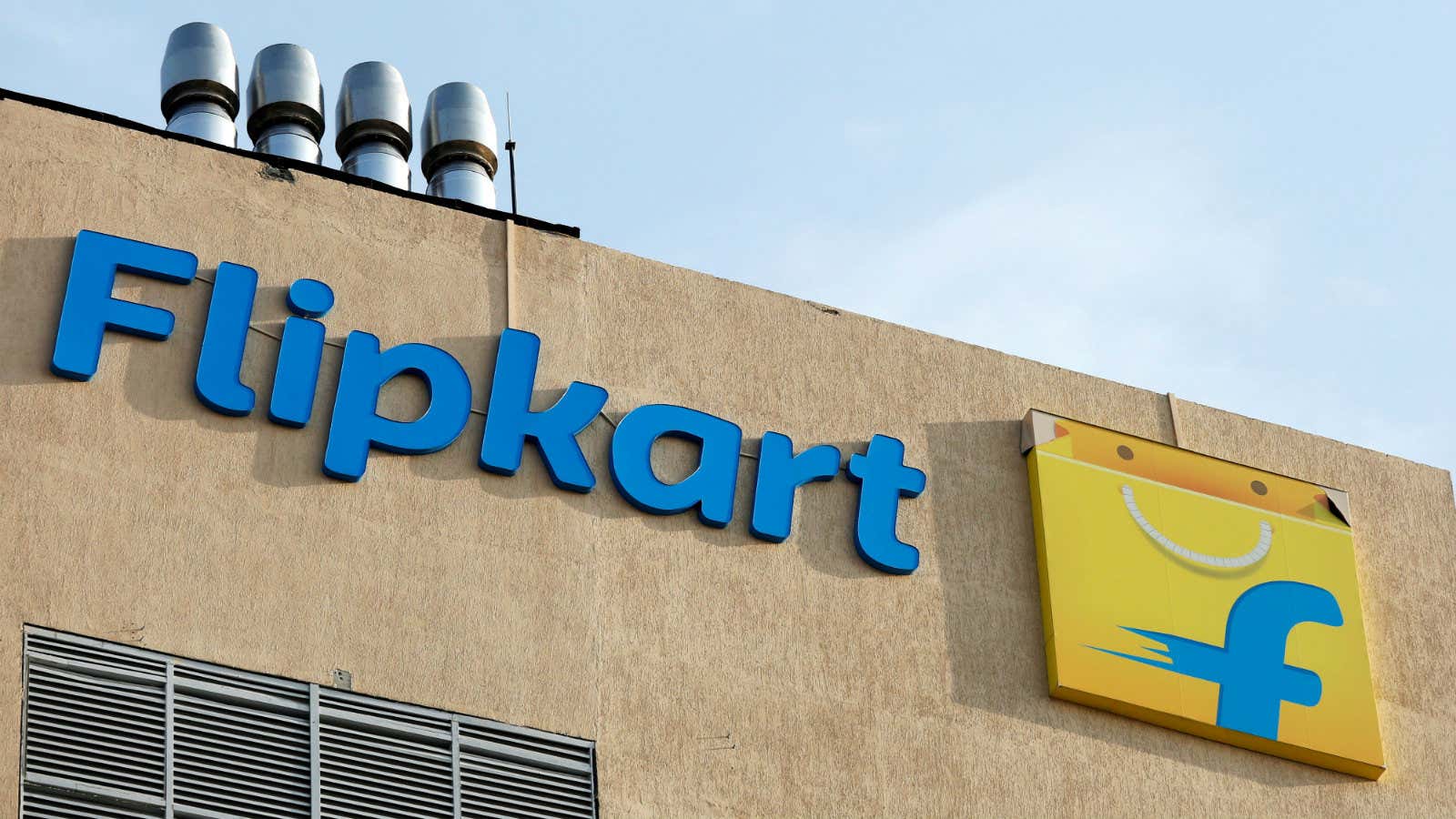Flipkart, it seems, is an anomaly in a stressed Indian economy.
At a time when several large industries in India, including automobiles and consumer goods, are struggling with poor consumer sentiment, the country’s largest homegrown e-tailer has said it’s doing just fine and is upbeat about its upcoming annual flagship week-long sale, Big Billion Days (BBD), which starts on Sept. 29.
“We don’t see too much of a slowdown because don’t forget that people buy daily wares from us. People buy T-shirts, shoes; people buy phone chargers, home bedsheets (sic), furnishings; we don’t see a big slowdown,” Flipkart Group CEO Kalyan Krishnamurthy said in an interview with television channel CNBC-TV18 yesterday (Sept. 23). “And on the other hand, we are a value platform, right? Even if there’s a bit of a slowdown in the market, people shift to value platforms, right? So we are not really worried about that. We see a huge amount of customer demand building up in the marketplace and we are very excited.”
This comment comes at a time when there are fears that India may be hit by a possible global recession.
The country recently lost its spot as the world’s fastest-growing major economy. In April-June, India’s GDP growth rate was at a six-year low of 5%, and private final consumption expenditure (which reflects demand in the economy) grew at its slowest pace in 17 quarters. Automobile sales in the country fell for the 10th straight month in August, and shoppers cutting down even on daily-need items such as underwears and biscuits. In addition, unemployment is at a 45-year high.
The Indian government has been trying to salvage the situation by doling out tax cuts and easing FDI norms.
All this gloom notwithstanding, buyers are flocking to Flipkart to buy products related to fashion, and general merchandise in categories related to mothers, women, beauty care, baby care, toys, and home, Krishnamurthy said in the TV interview. “All of those (categories) are the big ones and they continued to grow very strong even in the last couple of months and we expect the same in the next few months,” he added.
Flipkart did not respond to Quartz’s queries on how it’s bucking the economic trend.
Everyone but Flipkart
The festive season in India, which starts with Navratri in September and ends with the New Year, is when around 60% of the annual sales of electronics, FMCG and home-related items happen in the country, as per analyst estimates. But this time around, just days ahead of the festivities, heartbreaking stories of how the economic downturn is affecting people’s day-to-day lives have been making headlines.
For instance, in the western Indian city of Surat in Gujarat, organisers are struggling to find sponsors for community garba raas, a nine-day long dance festival organised during Navratri, which is celebrated with much fervour in the state each year, The Times of India newspaper reported on Sept. 21.
People are putting away investment and purchasing decisions out of fear about what will happen to the economy next. “My wife was looking forward to buying a new car this Diwali. Now with the kid and the overall economic insecurity, we have decided not to touch our savings. Taking a loan at this juncture is also out of question for us,” BW Businessworld magazine quoted a Gurugram-based mid-level IT sector executive on Sept. 23.
The situation is pretty grim even in the hinterland. “Private consumption, which contributes nearly 55-60%, to India’s GDP has been slowing down. While the reduced income growth of households has reduced urban consumption, drought/near-drought conditions in three of the past five years coupled with collapse of food prices has taken a heavy toll on rural consumption,” analysts at India Ratings and Research have said.
But Flipkart’s Krishnamurthy said the company is making efforts to lure shoppers from smaller Indian towns and cities to purchase online.
The unstoppable
In August, Flipkart launched video streaming on its Android app, which includes content from services such as Voot, Arre, Viu and TVF. Earlier this month, it launched a Hindi interface to tap into the non-English speaking population in India.
Now, the company is banking on such features to help it win during this festive season.
“A very big concept this time is on access. We launched Hindi for the first time. So we are going to scale it up in a pretty big way. Next BBD, when you’re here, you’re going to see a few more languages,” Krishnamurthy said. “We launched videos because 70% of new customers in India who enter the consumer internet funnel, enter through videos.”
In fact, Flipkart is not even concerned about the Indian government’s new e-commerce guidelines, which were widely seen as a dampener for the online retail industry in India. The new rules state that online marketplaces can no longer enter into exclusive deals for selling products or influence prices of items sold on their platforms. “…Customers had big expectations on discounts, on disruptive pricing (when BBD was first launched several years back). It’s no longer about that,” Krishnamurthy said. “…it’s not about discounts and pricing, it’s about these things (wide variety of items, and Hindi language interface), and we are very, very confident, we’ll continue offering more and more of these to our customers.”
